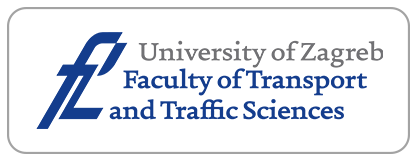A Hybrid Model Based on Support Vector Machine for Bus Travel-Time Prediction

Downloads
Downloads
Smith BL, Demetsky MJ. Short-Term Traffic Flow Prediction: Neural Network Approach. Transportation Research Record. 1995;1453:98-104.
Chien SIJ, Ding Y, Wei C. Dynamic Bus Arrival Time Prediction with Artificial Neural Networks. Journal of Transportation Engineering. 2002;128(5):429-438.
Chen M, Liu XB, Xia JX, Chien SI. A Dynamic Bus-Arrival Time Prediction Model Based on APC Data. Computer-Aided Civil and Infrastructure Engineering. 2004;19:364-376.
Acevedo-Rodríguez J, Maldonado-Bascón S, Lafuente-Arroyo S, Siegmann P, López-Ferreras F. Computational load reduction in decision functions using sup-port vector machines. Signal Processing. 2009;89(10):2066-2071.
Dong B, Cao C, Lee SE. Applying support vector machines to predict building energy consumption in tropical region. Energy and Buildings. 2005;37:545-553.
Elish KO, Elish MO. Predicting defect-prone software modules using support vector machines. Journal of Systems and Soft-ware. 2008;81(5):649-660.
Yu B, Yang ZZ, Yao BZ. Bus Arrival Time Prediction Using Support Vector Machines. Journal of Intelligent Transportation Systems. 2006;10(4):151-158.
Wu CH, Ho JM, Lee DT. Travel-time prediction with support vector regression. IEEE Transactions on Intelligent Transportation Systems. 2004;5(4):276-281.
Hellinga BR, Fu LP. Reducing bias in probe-based arterial link travel times estimates. Transportation Research Part C. 2002;10:257-273.
Cathey FW, Dailey DJ. A prescription for transit arrival/departure prediction using automatic vehicle location data. Transportation Research Part C. 2003;11:241-264.
Abbas K, Ehsan M, Saeid N, Doug C, Van LJWC. A genetic algorithm-based method for improving quality of travel time prediction intervals. Transportation Research Part C. 2011;19(6):1364-1376.
Ehsan M, Geoff R, Graham C, Sara M. Prediction intervals to account for uncertainties in neural network predictions: Methodology and application in bus travel time prediction. Engineering Applications of Artificial Intelligence. 2011;24(3):534-542.
Ngoduy D. Applicable filtering framework for online multiclass freeway network estimation. Physica A: Statistical Mechanics and its Applications. 2008;387(2-3):599-616.
Vapnik VN. An Overview of Statistical Learning Theory. IEEE Transactions on Neural Networks. 1999;10(5):988-999.
Vapnik VN. The Nature of Statistical Learning Theory. New York: Springer; 2000.
Yuan F, Cheu RL. Incident detection using support vector machines. Transportation Research Part C. 2003;11:309-328.
Ren JT, Ou XL, Zhang Y, Hu DC. Research on network level traffic pattern recognition. Proceedings of the 5th IEEE Conference on Intelligent Transportation Systems; 2002 Sep 3.6; Singapore. IEEE; 2002. doi: 10.1109/ITSC.2002.1041268
Reyna R, Giralt A, Esteve D. Head detection inside vehicles with a modified SVM for safer air bags. Proceedings of the IEEE Conference on Intelligent Transportation Systems; 2001 Aug 25-29; Oakland, CA. IEEE; 2001. doi: 10.1109/ITSC.2001.948667
Yu B, Yang ZZ, Chen K, Yu B. Hybrid model for prediction of bus arrival times at next station. Journal of Advanced Transportation. 2010;44(3):193-204.
Yu B, Lam WHK, Tam M L. Bus Arrival Time Prediction at Bus Stop with Multiple Routes. Transportation Research Part C. 2011;19(6):1157-1170.
Yu B, Yang ZZ, Li S. Real-Time Partway Deadheading Strategy Based on Transit Service Reliability Assessment. Transportation Research Part A. 2012;46(8):1265-1279.
Grubbs FE. Sample Criteria for Testing Outlying Observations. Annals of Mathematical Statistics. 1950;21(1): 27-58.
Grubbs FE. Procedures for Detecting Outlying Observation in Samples. Technometrics. 1969;11(1):1-21.
NIST/SEMATECH e-Handbook of Statistical Methods; 2010. Available from: http://www.itl.nist.gov/div898/handbook
Yang ZZ, Jin LJ, Wang MH. Forecasting Baltic Panamax Index with Support Vector Machine. Journal of Transportation Systems Engineering and Information Technology. 2011;11(3):50-57.
Moller MF. A Scaled conjugate gradient algorithm for fast supervised learning. Neural Networks. 1993;298(6):523-533.
Yao BZ, Yang CY, Yao JB, Sun J. Tunnel Surrounding Rock Displacement Prediction Using Support Vector Machine. International Journal of Computational Intelligence Systems. 2010;3(6): 843-852.
Yao BZ, Hu P, Zhang MH, Jin MQ. A Support Vector Machine with the Tabu Search Algorithm for Freeway Incident Detection. International Journal of Applied Mathematics and Computer Science. 2014;24(2):397-404.
Cao LJ, Tay FEH. Support Vector Machine with Adaptive Parameters in Financial Time Series Forecasting. IEEE Transactions on Neural Networks. 2003;14 (6):1506-1518.
Yao P, Lu Yh. Neighborhood rough set and SVM based hybrid credit scoring classifier. Expert Systems with Applications. 2011;38 (9):11300-11304.
Suykens JAK, Vandewalle J. Least Squares Support Vector Machine Classifiers. Neural Processing Letters. 1999;9(3):293-300.
Chua KS. Efficient computations for large least square support vector machine classifiers. Pattern Recognition Letters 2003; 24(1-3):75-80.
Ram BJ. A recursive version of Grubbs' test for detecting multiple outliers in environmental and chemical data. Clinical Biochemistry. 2010;43(12):1030-1033.
Azadeh A, Rouzbahman M, Saberi M, Valianpour F, Keramati A. Improved prediction of mental workload versus HSE and ergonomics factors by an adaptive intelligent algorithm. Signal Processing. 2013;94:350-358.
Aytug H, Koehler GJ, He L. Risk minimization and minimum description for linear discriminant functions. Informs Journal on Computing. 2008;20(2):317-331.




















